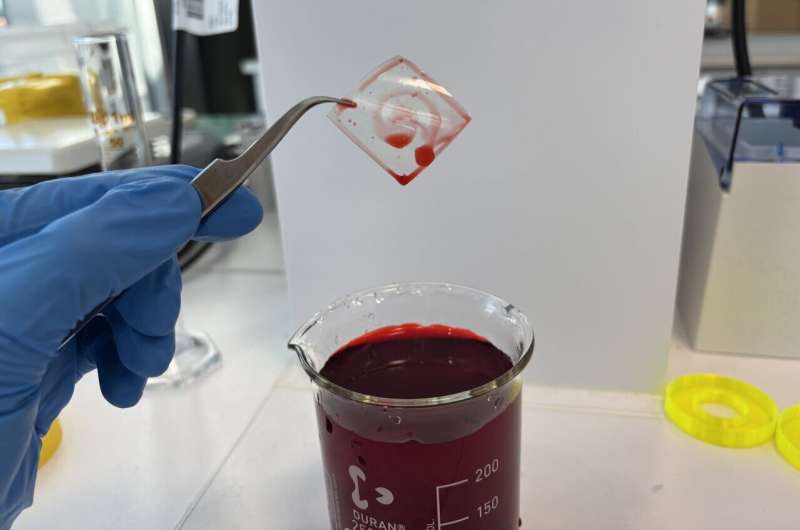With 500,000–600,000 Australians living with heart valve disease (in 2021), medical devices like heart valves and stents play a crucial role in saving lives. But proteins in blood can cling to the sides of the medical implants, building up over time and forming a blood clot. Often, this requires invasive surgery to remove or replace the implant.
“Medical implants are constantly under pressure to perform in the human body. A heart valve is constantly under high pressure to pump blood, opening and closing half a billion times over 10 years,” says Dr. Sina Naficy, who leads a research team developing heart valves that are more resistant to blood clots.
“The current average lifespan of existing heart valve implants is less than 10 years and there is always a risk of them degrading or complications occurring. By using Zwitterion coated materials, we aim to decrease the risk of blood clots and increase the lifespan of heart valves and other medical implants,” says Dr. Naficy, from the University’s School of Chemical and Biomedical Engineering, Faculty of Engineering.

